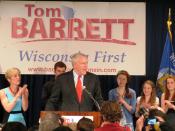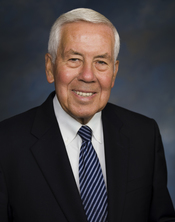took a while to write (it's over 4000 words) needs a bit more analysis
Political parties have become increasingly unpopular and have
lost a great amount of power because of it. Interest groups are slowly
picking up where parties left behind and are becoming more and more
important not only in mobilizing voters, but also in lobbying
government officials to aide their cause.
In the early 1900's, parties solely were in charge of the
nomination process. A small group of party leaders, also known as a
caucus, would choose who would run against the opposing party's
candidate and what office this individual would be seeking. It was a
process that was closed off to everyone but the party leaders, and
thus, could be tagged 'undemocratic.'
Years later, because of the 'Party Machines' of the north and
the completely Democratic south, primaries replaced caucuses.
Primaries allowed for members(not only leaders) of the party to vote
for whom they wanted to nominate.
Primaries also gave individuals
the right to run for office under their party's name. Thus, the party
couldn't prohibit anyone from running for public office as a member of
that particular party if the individual was a registered member of that
party.
The primary system of nominations has become so vast and
popular that it has broken down into three different styles(each
practiced by different states): open, closed, and blanket. Open
primaries are just that; open for anyone to vote in any party. For
example, a Democrat can vote in the Republican primary and vice
versa. Closed primaries(which are the most widely used) are closed
to people belonging to that party. Republicans can only vote in the
Republican primaries and Democrats the same. Blanket
primaries(practiced in only a few states) are relatively open in the
sense that both Democrats and...


